
Sleeplessness, anxiety and stress is hampering our post-Covid bounce back to health, according to a new report. To help put people on the right track, experts at the Tea Advisory Panel have shared some tips as a new report reveals how a healthy brew could be key to combating a triple block to our health.
Published by health experts at the Tea Advisory Panel (TAP), the report[1]: Sleep, stress, anxiety and tea: The good brews! Covers the latest science and consumer intelligence, giving insights into Brits’ favourite beverage along with its role in helping to combat sleep issues, stress and anxiety.
“Teas and herbal infusions can provide a simple, sustainable, and enjoyable solution to this triple-block of wellbeing woes,” says Dr Emma Derbyshire, Public Health Nutritionist and scientific adviser to TAP, adding, “There is far too much myth and misinformation around tea. With Britons drinking an estimated 100 million cups every day, it is important we share the evidence about this popular beverage’s benefits.”
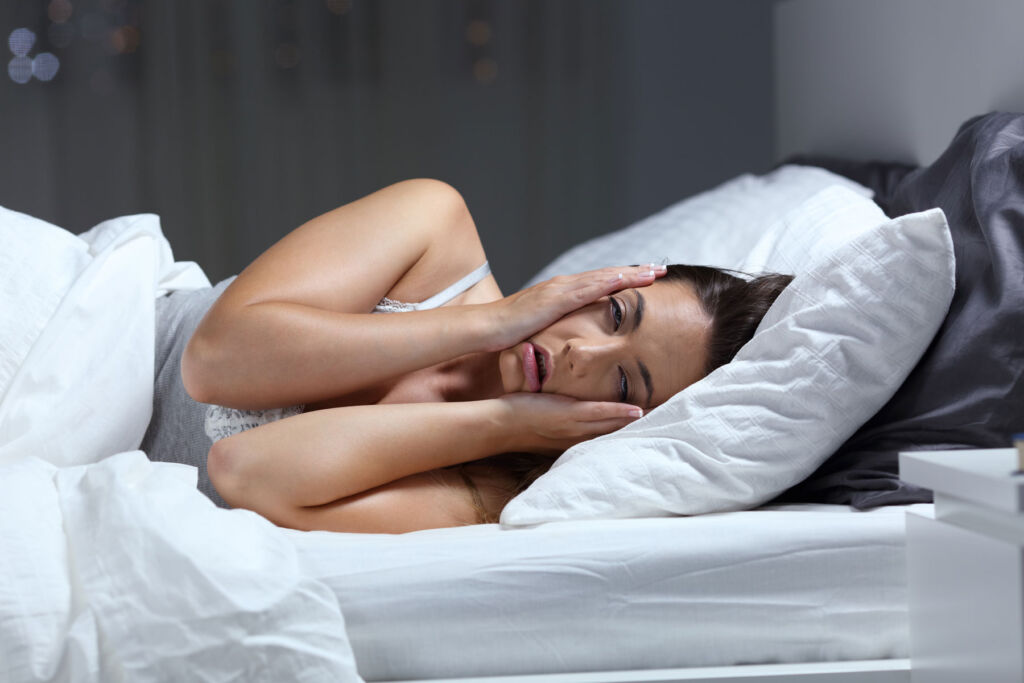
TAP member Dr Tim Bond adds, “There is still a lot to learn, but it’s clear that tea and herbal infusions provide well-being support via multiple modes of action.
“We know that stress and anxiety can disrupt sleep, and sleep deprivation increases levels of anxiety and stress, so it’s likely that any intervention which addresses one of these triggers will lead to improvements for all.
“What makes tea and herbal infusions so interesting is that they seem to have an impact in all three areas of health.”
Keep Calm and Drink Tea
The report highlights a UK study carried out before the Covid pandemic, which reported that, in the previous year, three-quarters of people had felt overwhelmed or unable to cope due to stress.
Additionally, the mental health charity, Mind estimates that, in any given week, 6% of Brits struggle with generalised anxiety, which is known to inhibit good sleep.
Dr Emma Derbyshire details further, “The pervasiveness of sleep disruption, stress, and anxiety issues is a public health emergency. Challenges on this scale mean there are millions of people who are not achieving their potential and living life to the fullest.”
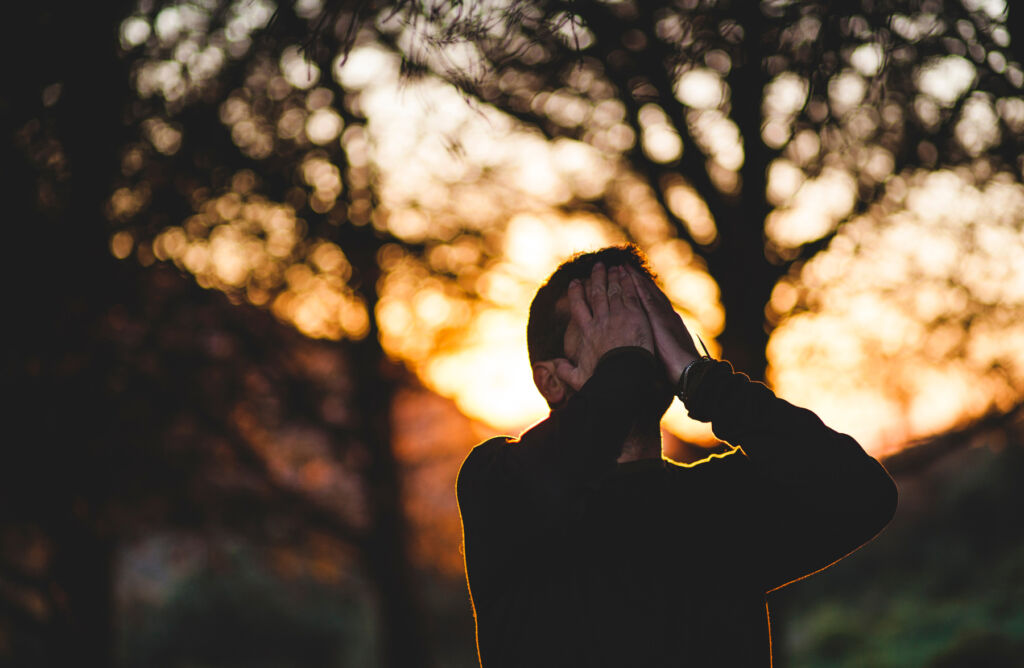
The TAP report reveals some nightmarish health statistics around poor, quality sleep. For example:
- If all adults aged 50 to 75 slept well, 72% of new cases of coronary heart disease and stroke could be avoided each year.
- Chronic sleep deprivation alters brain chemistry and is associated with increased depression, anxiety and general distress. It also exacerbates pre-existing depression and anxiety.
- Over time, stress weakens the immune system and reduces our resistance to disease.
In better news, research carried out by TAP suggests British adults are mindful of these risks, with 28% wanting to reduce stress and anxiety and 30% setting themselves the goal of getting better sleep.
Leafing Through the Stress, Anxiety and Sleep Benefits
GP Dr Gill Jenkins, an adviser to TAP, reminds us, “No one is suggesting that a cuppa will eliminate all stress, anxiety, and sleep issues, but there is good evidence that regularly drinking tea and herbal infusions will go a long way towards easing symptoms.”
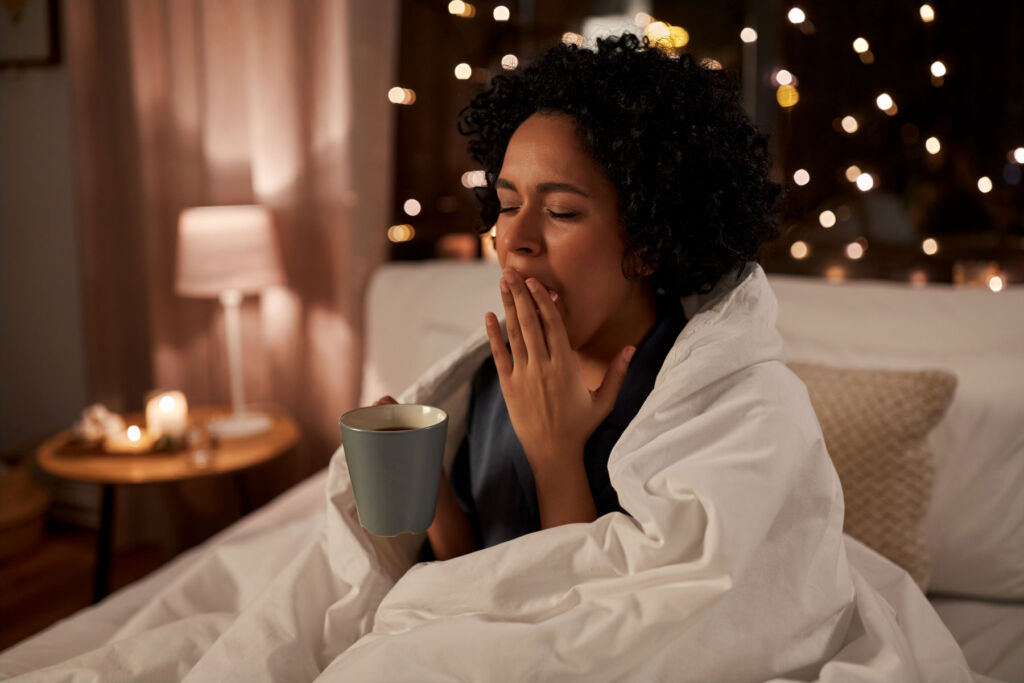
She also debunks a common caffeine misconception, saying, “The TAP research review also found no evidence for the belief that the small amount of caffeine in tea has a negative effect on sleep.”
What’s more, the beneficial flavonoids in tea may boost physical and mental health in a wide range of ways. Highlighting the natural health-promoting substances found in tea, Dr Tim Bond says, “Given the high concentrations of flavonoids in tea, and its popularity as a beverage, it’s perhaps not surprising that it’s a primary source of health-enhancing flavonoids in the UK diet.”
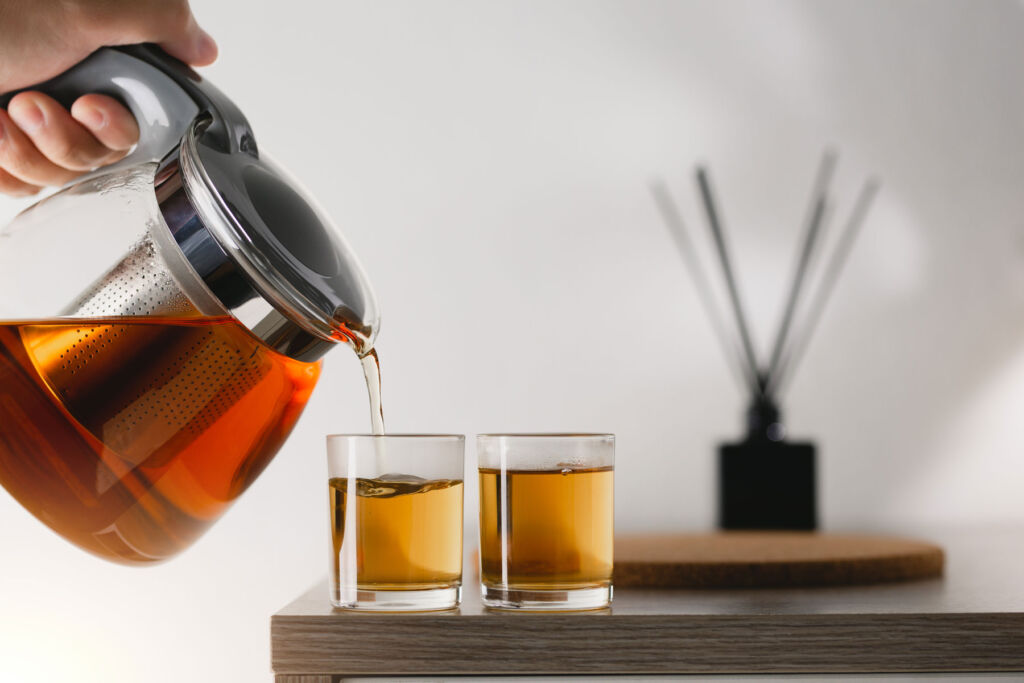
One study referenced in the TAP report estimated that a classic cup of tea, brewed for two minutes, contains 172mg of flavonoids per 235ml, while another suggested that three cups of tea provide the same levels of antioxidants as six apples.
The Importance of the Whats, Whys and Hows
Dr Emma Derbyshire highlights the importance of understanding the “What’s, Whys, and How’s” when looking at scientific research. She says, “The benefits of tea have been identified in randomised controlled trials and are thanks to the tangible mechanisms that tea possesses, such as changes to brain activity or measures of stress hormones and other body chemicals.”
For example:
- A trial involving 30 volunteers found that day-long tea consumption provides the same boost to alertness as coffee but without the sleep disruption.
- A double-blind trial in children with autism found that Oolong tea, with high levels of GABA, regulates stress and sleep, reduces anxiety and mood issues, and in some cases, also improves dexterity and balance.
- Researchers from Japan discovered that inhaling black tea aroma lowered stress levels when volunteers were asked to complete mental maths stress tests.
- A trial in sleep-deprived new mothers showed that drinking a lavender infusion and inhaling its fragrant aroma reduced depression and fatigue and enhanced bonding with their babies.
Dr Tim Bond adds, “Another important consideration is that teas and infusions have no downsides, unlike sleep medicines which often have undesirable side effects.”
So, How do they Exert their Beneficial Effects?
Dr Gill Jenkins mentions a key amino acid, explaining that “GABA is a naturally occurring amino acid which acts as a neurotransmitter and is known to regulate stress and sleep, so there is every reason to believe that teas which contain GABA will help to ease stress and improve sleep.”
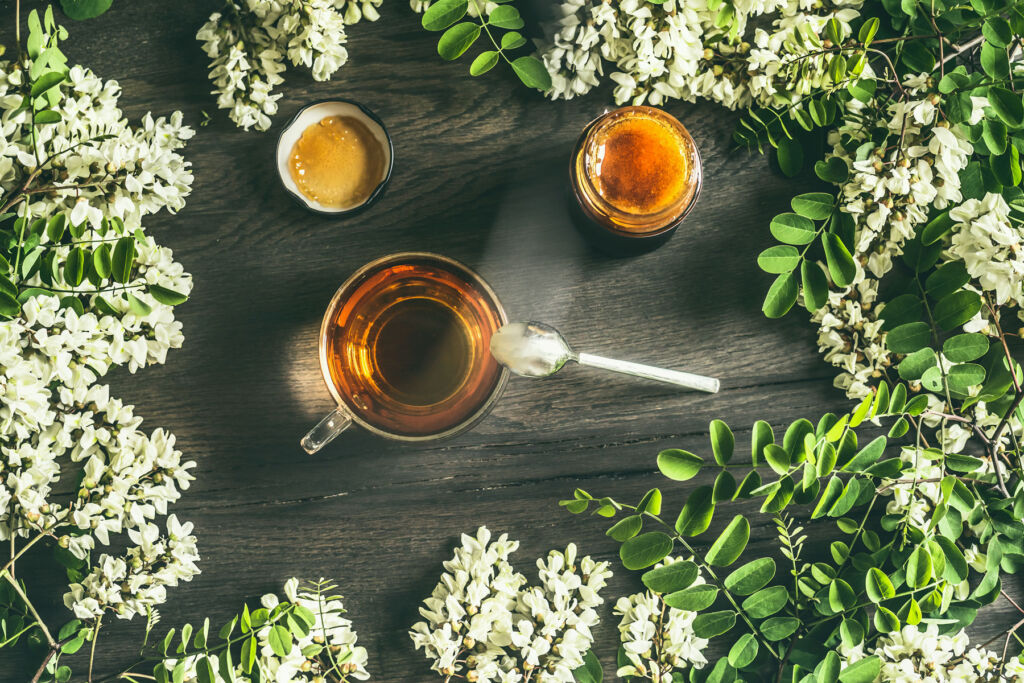
Green tea also contains epigallocatechin-3-gallate (EGCG), which has been shown to prevent memory deficits associated with sleep deprivation, as well as having sedative and anti-anxiety properties, in part via its action on GABA receptors.
L-theanine, another amino acid found in both black and green tea, has also been shown to regulate sleep disorders via GABA receptors and the neurotransmitter system, which relays messages between the brain and body.
Dr Tim Bond says, “There is still a huge amount to learn in terms of mechanisms of action etc., but the benefits of drinking tea and infusions on a regular basis are beyond doubt.”
Dr Emma Derbyshire adds, “As so many health benefits are associated with the flavonoids which give these teas and infusions their distinctive flavours, there is a lot to be said for trying out different teas.”
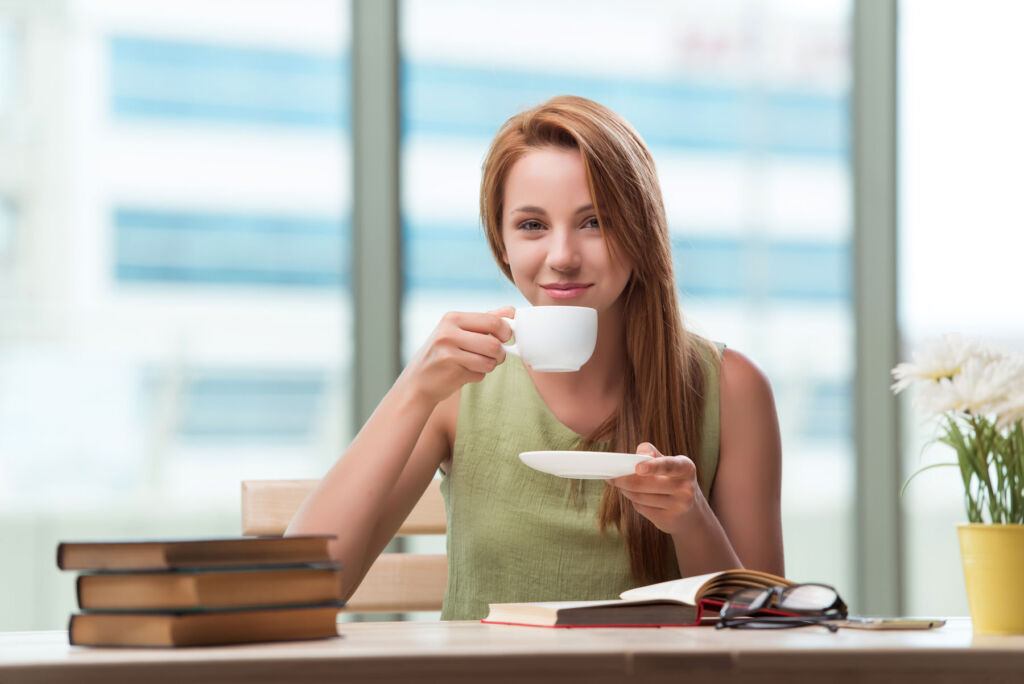
Tea Tips to Combat the Triple-Block
Research¹ reviewed by TAP reveals that more than half (53%) of Brits think tea improves sleep, and 67% are convinced it boosts concentration. One in five (20%) say their primary reason for making a cuppa is to unwind, and 57% report they always feel relaxed after a cup of tea.
When they feel the need to de-stress, most consumers will reach for a classic black tea (41%), but infusions are also a frequent go-to, with 29% opting for chamomile and 13% for a peppermint tea.
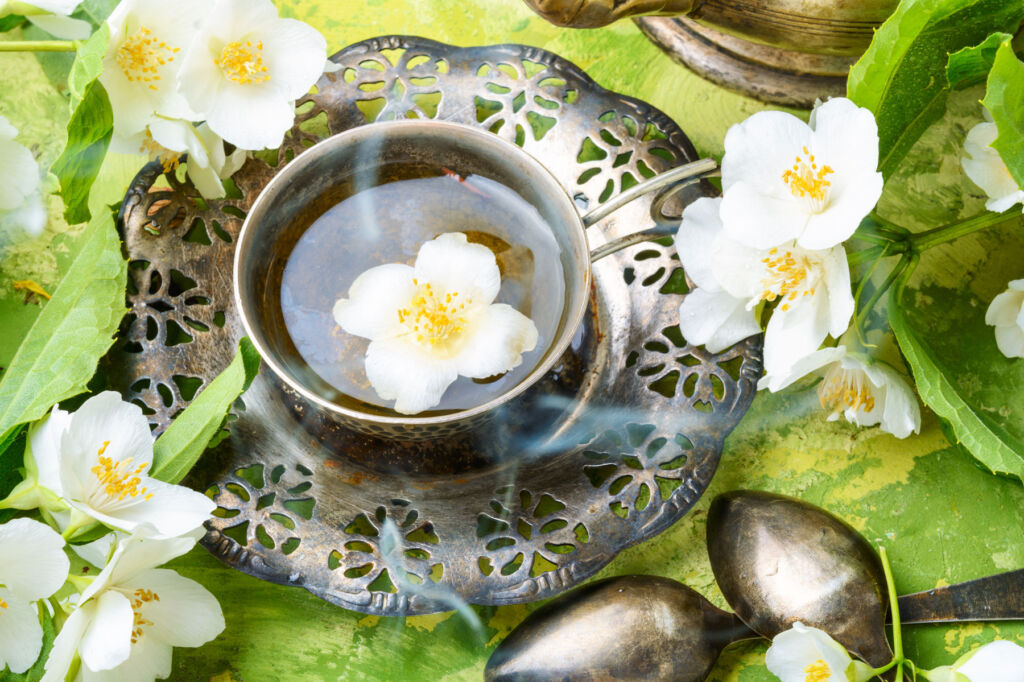
So, according to the experts at TAP, which tea should you try if you’re struggling with one or more aspects of the triple block to good health?
Mood regulation or staying focused yet relaxed: Black and green tea contains the amino acid L-theanine, which is associated with improved mood regulation and increased alpha-wave activity, an indicator of relaxation without drowsiness.
Sleep quality: Chamomile has a long history of use as a sleep remedy. In clinical trials, chamomile tea has been shown to deliver significant improvements in sleep quality.
Mood regulation and relaxation: Lavender has traditionally been used as a soothing and slightly hypnotic mood stabiliser. Studies show that drinking or inhaling lavender has a direct effect on the nervous system and brain.
Relaxing after a stressful event: Jasmine Tea is made by scenting black tea with Jasmine blossoms after drying. This process means the tea absorbs plant volatiles released by the blossoms, which activate the parasympathetic nervous system — a network of ‘rest and digest’ responses that relax the body after periods of heightened stress.
Anxiety, mild stress, or sleep problems: Passionflower blooms contain potentially beneficial plant compounds, including chrysin, a flavonoid which binds to benzodiazepine receptors in the brain and has been shown to reduce anxiety in a similar way to the anti-anxiety drug diazepam.
For more information on the benefits of tea, visit www.teaadvisorypanel.com. To read more features on tea and other health guides and news, click here.
¹ Tea Advisory Panel: Sleep, Stress, Anxiety And Tea: The Good Brews! New Research Reveals Beverage Benefits; Edition 1; Spring 2023.
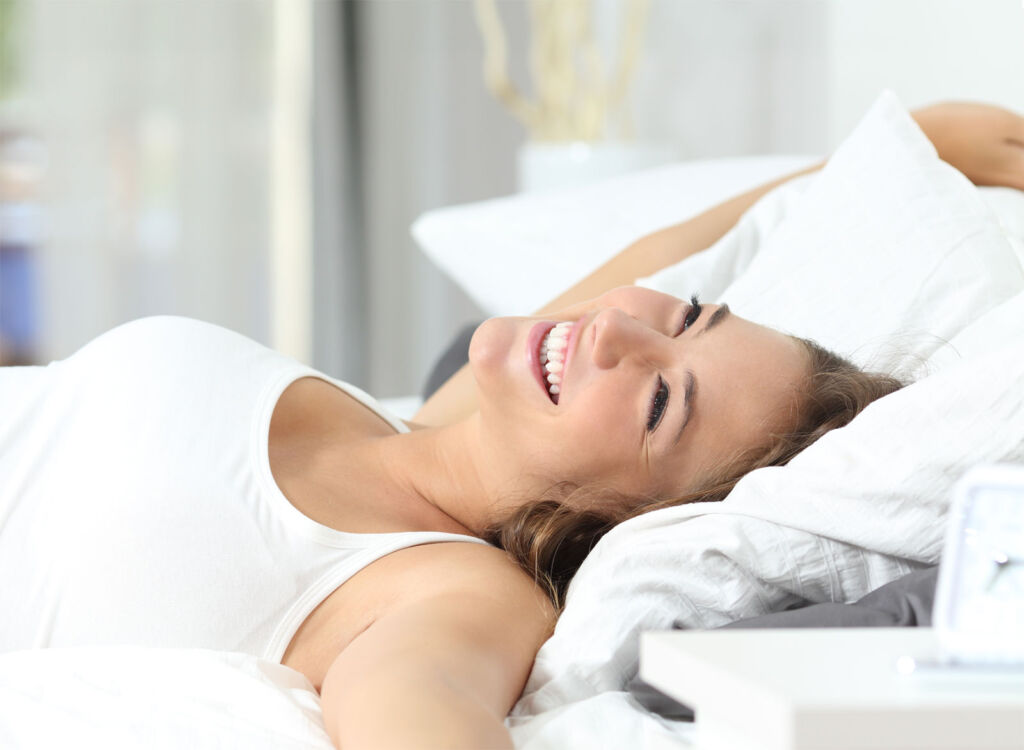
![]()

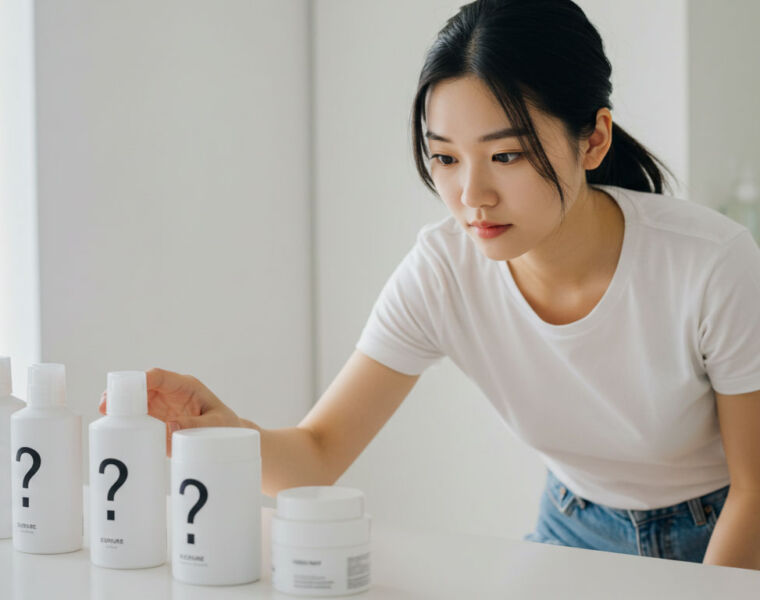


You must be logged in to post a comment.